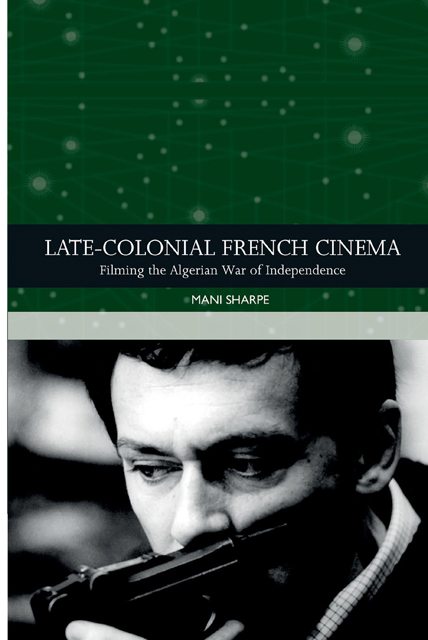3 - Militarised Masculinity and its Losses
Published online by Cambridge University Press: 13 April 2023
Summary
In his book Sex, France, and Arab Men, historian Todd Shepard states his intention to ‘map out important connections between two conversations that have drawn much scholarly attention in recent years, yet which too often ignore each other: histories of empire and histories of sex’ (2017: 4). In the introduction to their edited collection, Gender and French Cinema, Alex Hughes and James S. Williams articulate a similar injunction, stressing that ‘any inventive rethinking of gender and French cinema’ should involve an attentiveness to ‘vectors of subjective location, such as history, nationality, ethnicity, class, colonialism and post-colonialism’ (2001: 8–9). Taking its cue from theorists such as these, this chapter thus aspires to explore the ‘often ignored’ relationship between the ethics of decolonisation, the politics of cinematic representation and the thematics of masculine identity in two late-colonial narratives: Jacques Dupont’s Les Distractions/Trapped by Fear (1960), and Louis Malle’s psychological drama, Le Feu follet/The Fire Within (1963).
Virility and Castration
Since the rise of post-colonial theory in the 1960s and 1970s, an increasing number of scholars, often working within French studies, cultural studies and cultural history, have drawn attention to the relationship between colonisation, colonial culture and patriarchal ideology. According to these theorists, the slow seizing of Algeria by France throughout the 1800s should be seen not only as a military, economic and political process, but also a gendered one; one that involved, and indeed was facilitated through, the insidious victimisation of the female colonised community, alongside the attendant feminisation of colonised territory (see Branche 2001; Lazreg 2008; Brun and Shepard 2016a). As Maria Flood glosses: ‘the penetration of the geographical terrain of Algeria by French soldiers was bound up in an imaginary of unveiling, access to the harem, and the literal penetration of women through consensual sex, or rape’ (2017: 40).
Less scrutinised yet equally worthy of consideration is the fallout of this history of colonial ‘penetration’, that is to say, how the protracted withdrawal of soldiers from Algeria during the years of decolonisation may have altered the gendered politics of French culture; how the gendered dynamics of military life may have seeped into metropolitan narratives; how cultural iconographies of gender may have impacted upon the late-colonial debate; and how cinematic images of gendered identities or sexual orientations may have been used to intimate a stance for or against colonialism, the war, or political engagement more generally.
- Type
- Chapter
- Information
- Late-Colonial French CinemaFilming the Algerian War of Independence, pp. 72 - 102Publisher: Edinburgh University PressPrint publication year: 2023

